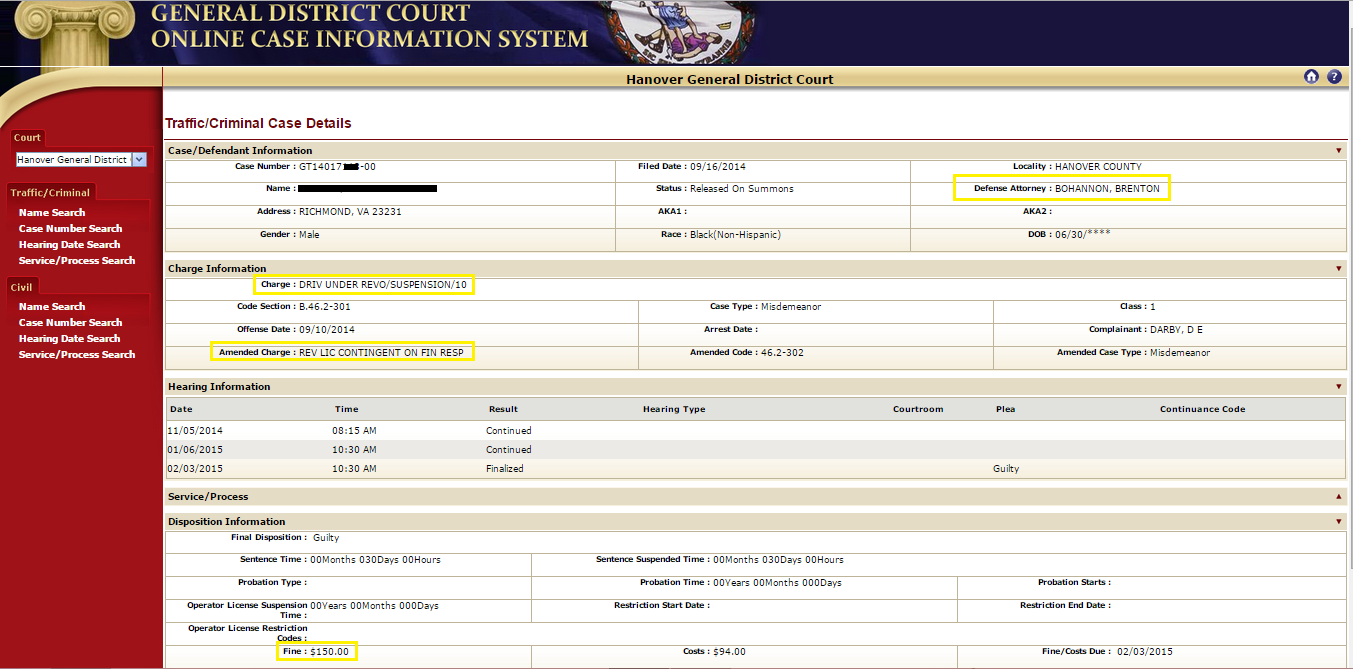Driver License Revoked
How can the answer be improved?
The number of Pennsylvania drivers age 65 and older reached nearly 2 million recently—and is growing yearly. While the myriad rules and regulations enforced by the Pennsylvania Department of Transportation (DOT) apply to drivers of all ages and stages, the state imposes some special requirements and restrictions on older drivers.
Pennsylvania state rules are explained in more detail below, but a couple of them focus on identifying and handling older drivers who may have become unsafe.
Specifically, Pennsylvania:
- conducts random tests of a sample of drivers who are age 45 and older each month—and requires them to submit vision and physical exams to prove fitness for driving, and
- requires doctors and other medical practitioners who diagnose patients with conditions that may make them unsafe drivers to report the diagnosis.
License Renewal Rules for Older Drivers
Pennsylvania operates a unique program in which nearly 2,000 drivers over the age of 45 are chosen at random each month to have vision and physical exams.
Time limits: All drivers must renew every four years.
Vision test: May be required if driver is randomly chosen for retesting.

Physical fitness test: May be required if driver is randomly chosen for retesting.
Written test: May be required in the discretion of DOT personnel.
Road test: May be required in the discretion of DOT personnel.
Possible License Restrictions
The DOT can place restrictions or conditions on a person’s driver license after administering a driving test and discussing possible restrictions with him or her.
The most common restriction for older drivers is to require glasses or corrective contact lenses.
In Pennsylvania, other common requirements the DOT may impose on older drivers include driving only:
- vehicles equipped with air brakes
- vehicles equipped with mirrors on both sides
- vehicles with automatic transmissions
- during daylight hours
- within a specified geographic area
- while wearing hearing aids, and
- in accord with the specific medical restrictions listed on the driver’s license.
How to Request an Unsafe Driver Investigation in Pennsylvania
The Pennsylvania DOT will accept information from medical practitioners, police family members and other concerned individuals who have information that a person may have become unsafe behind the wheel.
To request that the DOT review driving qualifications, write a detailed letter regarding your observations and the driver's specific medical impairments. The letter must also include your name and contact information.
Mail the letter to:
Pennsylvania Department of Transportation
P.O. Box 68682
Harrisburg, PA 17106
Additional information is available in a downloadable guide, “Talking With Older Drivers: A Guide for Family and Friends.”
Mandatory Reporting for Doctors
Pennsylvania is one of only a few states that require medical practitioners—which includes all physicians, chiropractors, physician assistants, certified registered nurse practitioners, and others authorized to diagnose or treat disorders and disabilities—to report within 10 days, in writing, the full name, address, and date of birth of every person over 15 years old diagnosed as having a condition that could impair his or her ability to drive.
For detailed information on the requirements of medical reporting, as well as downloadable forms, see the DOT’s Medical Reporting Information Center.

Pennsylvania Driver Improvement Programs
Drivers can improve their skills by taking an education and training class specifically developed for older drivers. Local course offerings approved by the DOT called “Mature Driver Improvement Courses” are listed on the DOT website.
How to Get a License Reinstated
For information on how to get back a license that has been suspended or revoked in Pennsylvania, contact one of the DOT Driver License Offices located throughout the state.
How to Get Parking Placards or License Plates for a Disabled Driver
Disabled person parking placards and license plates can be issued to drivers with impaired mobility if a licensed medical practitioner certifies the condition.
The placards and plates are available for those who:
- are blind
- do not have full use of one or both arms
- cannot walk 200 feet without stopping to rest
- cannot walk without the use of, or assistance from, a brace, crutch, another person, prosthetic device, wheelchair, or other assisting device
- are severely restricted by lung disease
- use portable oxygen
- have a severe cardiac condition
- are severely limited in the ability to walk due to an arthritic, neurological, or orthopedic condition, or
- are responsible for the life and care of a person with one of the conditions described above.
To obtain a disabled placard or plate:
- Complete and sign either or both a Person With Disability Parking Placard Application and Application for a Person With a Disability or Hearing Impaired Registration Plate or a Person With a Disability Motorcycle Plate.
- Have a licensed health care provide complete the certification portion of the form.
- Include a fee if required; mandatory fees are explained on the form.
- Mail the original application to the address on the form.
Arizona Revoked Driver License
For more information, see the comprehensive section on the DOT’s website, “Person With Disability Parking Placards/Plates.”
Mn Drivers License Revoked
Learn More About Pennsylvania Driving Rules for Seniors
The DOT website has a wealth of information for Pennsylvania drivers, including licensing and vehicle registration requirements.
Of special interest is the “Older Driver Information Center,” which includes advice on recognizing and assessing vision and cognitive impairment and conditions that may affect driving, along with other targeted and practical information for older drivers.
Where to Find a Lawyer for Help
You can use Nolo’s Lawyer Directory to find a local lawyer experienced in representing older people who need help with auto accidents or traffic tickets in Pennsylvania.
Understanding the difference between a suspended license and a revoked license is important if you find yourself in trouble for certain types of traffic violations. The more severe your violation, the more severe the penalties can be. A suspended license is not the same as revoked license. A simple key point to differentiate the two is a suspended license is bad and a revoked license is very bad -- a suspended license is a temporary hardship, but a revoked license is permanent.
Suspended Driver's License
A suspended driver's license means your license is temporarily out of service. You cannot legally drive with a suspended license. There are two types of suspended licenses: definite and indefinite. A definite suspension of your license will end once the suspension period ends and you have paid the necessary suspension termination fees (which vary by state). Licenses can be suspended for several different reasons and offenses vary by state, but a few common reasons for definite suspensions are alcohol or drug related moving violations, driving without liability insurance, or receiving too many traffic tickets.
An indefinite suspension means that your license will remain suspended until you take some action, such as paying for a traffic ticket (or your child support/taxes, in some states). Your license could also be indefinitely suspended under an administrative review suspension in some states if you have a medical condition that makes you a danger on the road. Getting caught driving with a suspended license will lead to more penalties including fines and the possible revocation of your license. If you are in an accident, your simple misdemeanor charge can escalate to a felony.
Revoked Driver's License

Driver License Reinstatement
A revoked driver's license means your license has been fully canceled and cannot be reinstated. In order to get a license again, you will have to request approval from your state’s DMV, pay any driver civil penalties you owe, and go through your state's licensing process, which typically involves a written test and a road test (and of course is not free).
If you pass the tests, a new driver's license will be issued -- your old one will not be reinstated. Common reasons for revocations include driving without insurance, being convicted of a serious traffic offense, failing a DMV road test, or making a false statement on a driver’s license or car registration application form. It is also possible to have your driver's license revoked or even permanently revoked due to multiple driving offenses, medical conditions, and age.
License Status and Insurance
Your driver's license status is important when it comes to your car insurance.
Having your driver's license suspended or revoked will probably get your insurance policy non-renewed.
It is possible to insure a vehicle without a driver's license, but it is not easy to find an insurance carrier willing to do it. Expect to be an excluded driver, and pay a higher rate. If you are caught driving while your license is either revoked or suspended, your insurer will almost certainly cancel your coverage, require special (expensive) coverage, or raise your rates dramatically.
